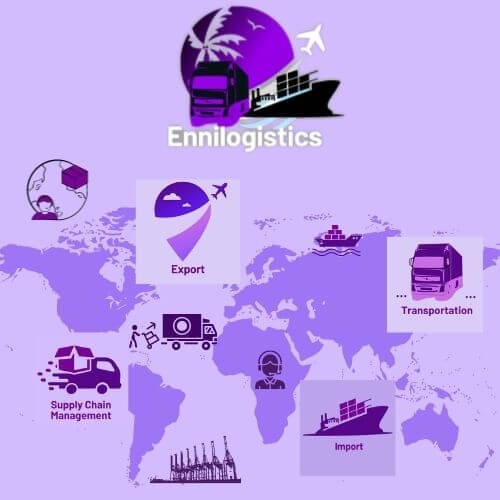Double brokering, simply put, occurs when a freight broker accepts a load from a shipper and subsequently brokers it out to another carrier without the shipper’s knowledge or consent. This unauthorized intermediation can lead to a chain of complications, posing significant risks for all parties involved.
For shippers, double brokering Freight can result in a multitude of issues. They may face financial losses due to inflated costs as multiple brokers add their markups to the freight rate. Moreover, delays in delivery and damaged relationships with customers can ensue, leading to a dent in their reputation and customer satisfaction.
On the other side, carriers also bear the brunt of double brokering. Unbeknownst to them, they might unknowingly accept double-brokered loads, putting them at risk of non-payment or disputes over payment. The legal ramifications can be a headache, and their reputation within the industry may suffer as well.
Given these worries, it is crucial for both shippers and carriers to be knowledgeable and to take precautions to avoid the pitfalls of double brokering. The challenges that shippers and carriers must overcome are covered in the sections that follow. We’ll also discuss due diligence procedures, identify warning signs to look out for and highlight industry best practices to promote trust and strengthen relationships.
What is double brokering in freight?
When a freight broker accepts a shipment from a shipper and then brokers it to another carrier without the shipper’s knowledge or consent, the practice is known as double brokering. It basically entails a third party entering the transportation process without authorization, which can cause a variety of problems.

Let’s think about an example to demonstrate this idea. Consider a scenario where Shipper Company A hires Broker X to deliver their cargo from Point A to Point B. Unbeknownst to Company A, Broker X decides to broker the shipment out to Carrier Y rather than assigning it to a reputable carrier. The chain of custody is muddled in this case because Company A is unaware that Carrier Y is handling its freight.
Let’s now have a friendly discussion about the dangers and unfavorable effects of double brokering. These risks are significant for both shippers and carriers involved in the transaction.
Financial issues are the main priority for shippers. Due to the fact that each broker adds their own markup to the freight rate, double brokering frequently results in inflated costs. The cost of transportation services may end up costing shippers much more than they had anticipated, which will affect their bottom line. Additionally, a lack of transparency in the procedure may cause misunderstandings, holdups, and diminished customer satisfaction. In order to fulfill their own obligations and uphold good relations with their clients, shippers depend on timely deliveries.
Accepting double-brokered loads can have a number of negative effects on the carrier. The risk of nonpayment is foremost. The carrier might be put in the middle of a payment dispute if the original broker doesn’t pay the carrier or if there is one between the brokers. Their operations could be hampered, and their cash flow could be strained. Additionally, carriers may face legal complications if disputes arise regarding their involvement in the double brokering scenario. Such legal entanglements can be costly and time-consuming, diverting resources from core business activities. Lastly, carriers’ professional reputations may suffer if they are associated with double brokering practices, potentially affecting their relationships with other brokers and shippers.
In summary, double brokering poses significant risks and negative consequences for both shippers and carriers. It undermines transparency, introduces financial uncertainties, and can lead to delays and damaged relationships. By understanding these risks, shippers and carriers can proactively take steps to mitigate them and foster a more trustworthy and efficient logistics ecosystem.
What are the issues with double brokering?
- Challenges Faced by Shippers
When shippers encounter the unfortunate situation of their freight being double brokered, they may face a range of challenges that can have significant implications for their operations and relationships with customers.
- Financial Losses
Double brokering often leads to financial complications for shippers. When multiple brokers are involved, each of them adds their own markup to the freight rate. As a result, the final cost of shipping the goods can be substantially higher than anticipated. This unexpected increase in expenses can strain a shipper’s budget, impacting their profitability and financial stability. It is essential for shippers to have a clear understanding of the rates involved and ensure transparency in the transaction process to avoid such financial losses.
- Delays and Disruptions
Double brokering can introduce delays and disruptions in the transportation process. When freight is passed through multiple brokers and carriers, it becomes more challenging to track and coordinate the movement of goods effectively. Miscommunication, lack of coordination, and shifting responsibilities can lead to delays in pick-ups, transfers, and deliveries. Such delays can have cascading effects on a shipper’s supply chain, impacting their ability to meet customer expectations and fulfill orders within the desired timeframes.
- Damaged Relationships with Customers
One of the most critical assets for any shipper is their customer relationships. Double brokering can erode trust and damage these vital connections. When a shipper’s freight is double brokered without their knowledge, it reflects poorly on their ability to ensure the smooth transportation of goods. Customers may experience delays, receive inconsistent updates, or face unexpected issues, leading to frustration and dissatisfaction. The shipper’s reputation may suffer, potentially resulting in lost business opportunities and strained long-term partnerships.
- Challenges Faced by Carriers
When carriers unknowingly accept double brokered loads, they can encounter a range of challenges that have significant implications for their operations, financial stability, and reputation within the industry. In this section, we will explore these challenges, highlighting the risks of non-payment, legal complications, and damaged reputation that carriers may face in a cordial manner.
- Risk of Non-Payment:
One of the primary challenges carriers faces when accepting double brokered loads is the risk of non-payment. In such situations, the original broker may fail to fulfill their payment obligations or become embroiled in payment disputes with subsequent brokers. As a result, carriers may find themselves caught in the middle, facing delays in receiving payment or even not receiving payment at all. This can severely impact a carrier’s cash flow, disrupt its operations, and strain its financial stability.
- Legal Complications:
Accepting double brokered loads can expose carriers to legal complications. If disputes arise regarding their involvement in the double brokering scenario, carriers may find themselves entangled in legal battles, which can be costly, time-consuming, and resource-draining. Legal proceedings can have detrimental effects on a carrier’s operations, diverting their focus from core business activities and potentially damaging their reputation.
- Damaged Reputation
Accepting double brokered loads can have a negative impact on a carrier’s reputation within the industry. If carriers become associated with double brokering practices, it can erode trust among brokers and shippers. Word spreads quickly within the logistics community, and carriers may find it challenging to secure reliable partnerships and new business opportunities. Building and maintaining a solid reputation is crucial for carriers to thrive and establish themselves as trustworthy and dependable service providers.

How to identify double brokering in Freight Transactions
When it comes to avoiding double brokering in freight transactions, recognizing the red flags is crucial. Shippers and carriers can safeguard themselves from potential risks and guarantee the integrity of their operations by being watchful and alert. In this section, we will highlight common red flags that may indicate a potential double brokering situation, ranging from suspiciously low prices to lack of transparency and inconsistent communication. Let’s dive in!
Unusually Low Prices
Freight rates that appear to be too good to be true may be a sign of possible double brokering. Prices that are unusually low compared to the industry standard may be a sign that there are several brokers involved, each of whom is marking up the freight rate. To avoid falling for double brokering scams, use caution and conduct a thorough investigation of such offers.
Transparency Issues
Transparency is essential in the freight business. It could be a warning sign if a broker or carrier is reluctant to give specific information about the parties involved, such as the actual carrier in charge of transporting the goods. Concerns about the legitimacy of the transaction and the potential involvement of unlicensed intermediaries are raised by the lack of transparency.
Communication Gaps
Effective communication is critical for efficient freight transportation. It could be a sign of possible double brokering if you observe inconsistent communication patterns, such as delayed responses, conflicting information, or difficulty getting in touch with the broker or carrier. A breakdown in the coordination between the various parties involved in the transaction may be indicated by a lack of consistent and dependable communication.
Changes to Carriers Without Authorization
It is a huge red flag if you find out that the carrier in charge of transporting your freight is different from the one the broker initially disclosed. Unauthorized carrier changes made without your knowledge or approval may be a sign of double brokering, in which your shipment is improperly disclosed to another party and then brokered out to them.
Shippers and carriers can spot potential double brokering situations by being aware of these warning signs and adopting a cautious attitude. In order to reduce the risks of double-brokering and guarantee the integrity of freight transactions, it is essential to be vigilant, transparent, and open with one another. To safeguard your interests and promote a dependable and trustworthy logistics ecosystem, stay vigilant, ask insightful questions, and perform meticulous due diligence.
Tips to Prevent Double Brokering in Freight Transactions
Preventing double brokering requires a proactive approach and adherence to industry best practices. Specific actions that shippers and carriers can take to protect themselves and guarantee the accuracy of their freight transactions. Here are the best tips if you’re looking for how to stop double brokering.
- Best Practices for Shippers
- Utilize Load Boards
Utilizing reputable load boards can help shippers connect directly with reliable carriers. Load boards provide a platform where shippers can post their freight requirements and carriers can submit bids, reducing the chances of involving unauthorized intermediaries.
- Conduct Background Checks
Before entering into business relationships with brokers or carriers, conduct thorough background checks. Verify their credentials, licenses, and reputation within the industry. Research online reviews and seek recommendations from trusted sources to ensure you are working with trustworthy partners.
- Implement Non-Double Brokering Agreements
Consider incorporating non-double brokering clauses into your contracts and agreements with brokers and carriers. These agreements establish clear expectations, discourage unauthorized brokering, and provide legal recourse in case of violations.
- Best Practices for Carriers
- Establish Direct Shipper Relationships
Building direct relationships with shippers can minimize the chances of double brokering. Cultivate strong connections with shippers by providing excellent service, meeting their expectations, and fostering trust and transparency.
- Verify Broker Credentials
When working with brokers, verify their legitimacy by checking their licenses, certifications, and reputation. Trusted brokerages often have established track records and are members of industry associations, providing an added layer of assurance.
- Sign Non-Double Brokering Agreements
Signing non-double brokering agreements with shippers and brokers can protect carriers from unknowingly accepting double-brokered loads. These agreements outline the responsibilities of each party, reinforce transparency, and provide recourse in case of violations.
Due to the dangers and drawbacks that double brokering may bring to shippers, carriers, and other stakeholders, it is frequently discouraged and disapproved of in the freight industry. It can lead to issues such as payment disputes, delays, damaged relationships, and reputational damage. Therefore, it is generally considered best practice to avoid engaging in or supporting double brokering to maintain transparency, trust, and integrity within the logistics ecosystem.





